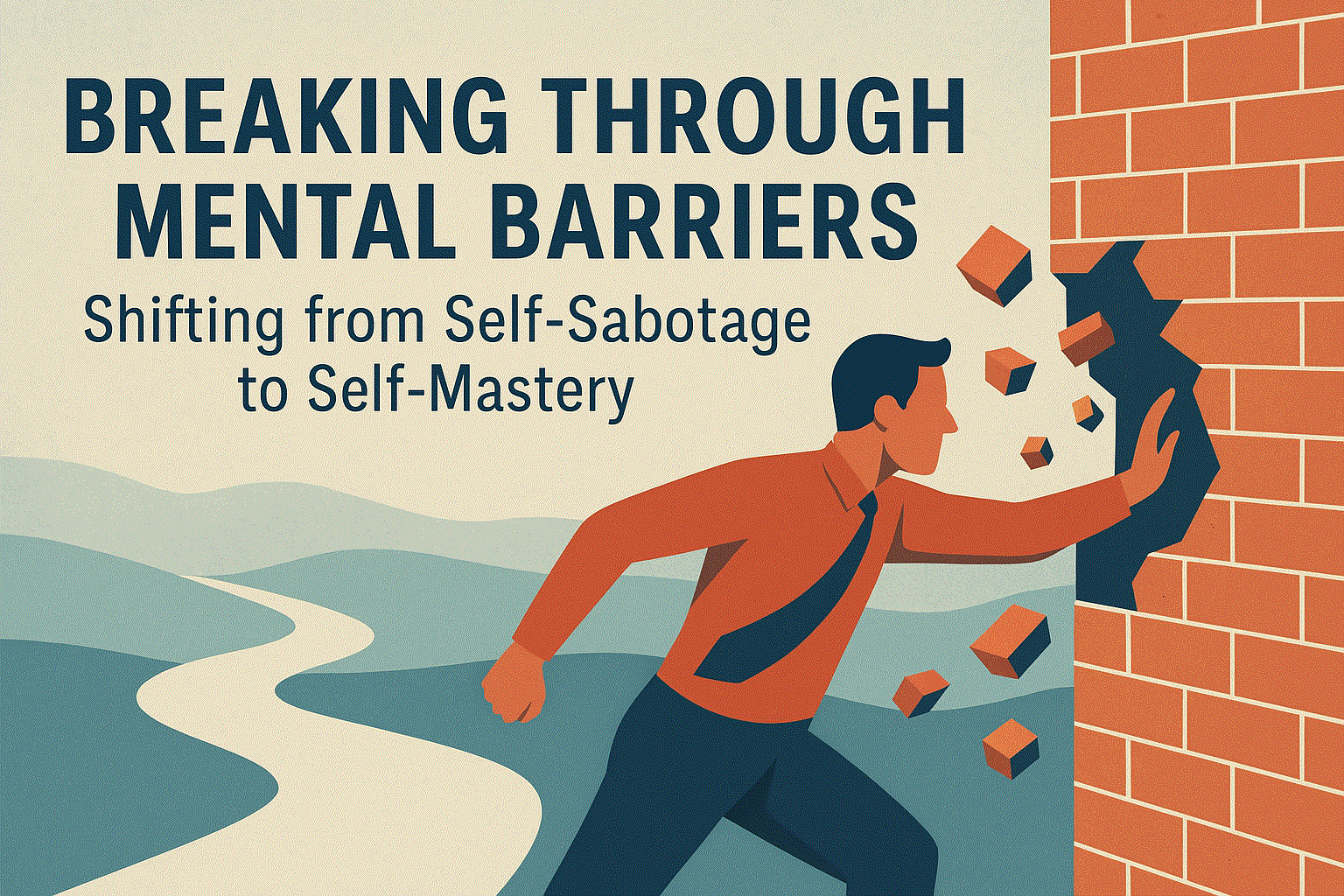Apr16

The Psychology of Self-Sabotage:
Self-sabotage often stems from unresolved fears, perfectionism, or subconscious beliefs about our worth. For example, if you believe you're not deserving of success, your actions may unconsciously reflect that belief. This is not weakness—it's a protective mechanism rooted in past experiences or emotional wounds. By understanding the 'why' behind these behaviors, you create space for healing and intentional change.
Building Emotional Awareness:
Awareness is the key that unlocks transformation. Begin observing your thoughts, habits, and emotional reactions without judgment. When you notice yourself avoiding something important, pause and ask, "What fear is coming up for me right now?" Emotional awareness turns reactive behavior into responsive, empowered choices.
Creating a Personal Mastery Practice:
The Role of Support:
While internal work is critical, support from a trusted guide or coach can make the journey smoother. Having someone reflect your blind spots with compassion, offer tools and structure, and hold you accountable helps you accelerate growth. A transformational coach like Zen can walk beside you as you navigate the shift from self-sabotage to self-mastery.
Wrap Up:
When you shift your mindset and become aware of self-defeating behaviors, you reclaim your power. Self-mastery is a lifelong journey, but every conscious choice moves you closer to the life you want. If you’re ready to go deeper, consider working with Zen to explore your own path to mastery.
If you'd like an opportunity to explore your accelerated growth path, reach out to Zen at BeTheDream.com
By Zen Benefiel
Keywords: Coaching, Mental Health, Transformation
 Lateral Moves: The Most Overlooked Succession Strategy in Companies
Lateral Moves: The Most Overlooked Succession Strategy in Companies The Asset Play: Timing, Structure & Global Arbitrage
The Asset Play: Timing, Structure & Global Arbitrage  The Orchestra Needs a Conductor: Why Multi-Model Agents Require H2E Governance
The Orchestra Needs a Conductor: Why Multi-Model Agents Require H2E Governance The Role of Memory in Modern-day Business
The Role of Memory in Modern-day Business The Architectures of Permanence: A Comparative Analysis of the "Big Three" AI Strategies (2026)
The Architectures of Permanence: A Comparative Analysis of the "Big Three" AI Strategies (2026)